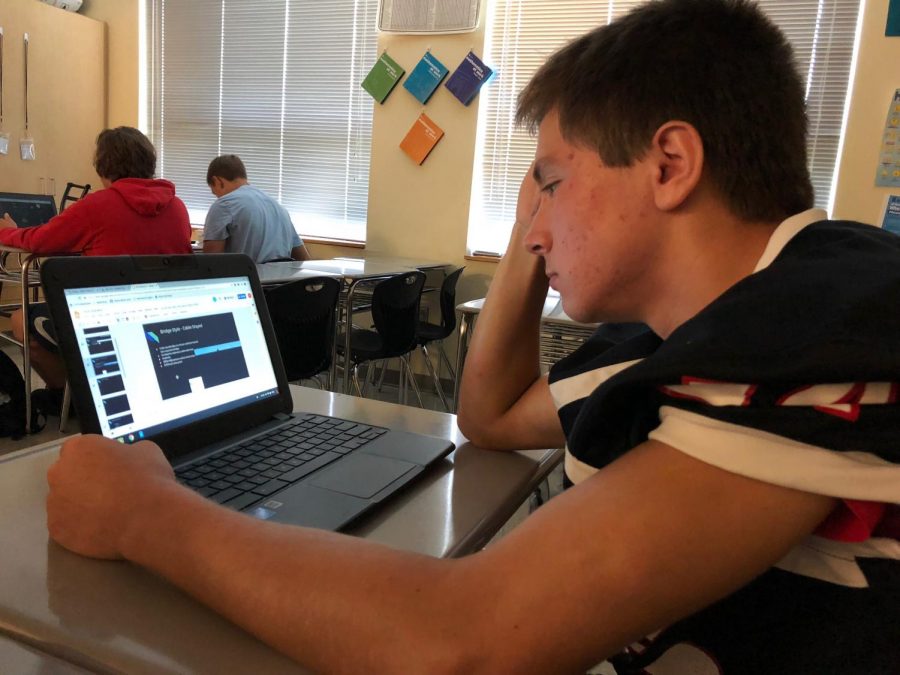Athletes should be given more flexibility with homework deadlines
Junior Nick Hayslett works in PREP to finish his homework on time.
September 24, 2018
Participating in high school sports is not easy. With practices every day and games or meets once or twice a week, many student-athletes struggle to balance school work and sports. I have had track meets where I don’t get home until 10:00 at night. By the time I shower and eat dinner, it’s 11:30. At this point I have to make a choice. I can either stay up for another two hours doing homework that is due in the morning, (but then have to go through the school day on 5 hours of sleep), or I can not do my homework (sleep, and turn in my homework late).
Studies published in the Journal of The American Academy of Pediatrics showed that students need at least 8 hours of sleep to fully function throughout the day. This can be an issue for student-athletes who don’t get to sleep until late at night and are up early in the morning.
No matter what I choose to do, I have to go to practice after school and repeat this process again every night. Teachers should sometimes give more time for homework because of this. I realize school comes before after school activities, but athletes are struggling in classes because of the loads of homework they have.
Student-athletes have to find a way to balance school work with games and practices. Many students don’t do sports just because of the amounts of homework they get. There just isn’t time. At the same time, many athletes love the sports they do and wouldn’t give it up because of extra pressure to complete homework. Sometimes that means they will not do their homework just because of how late athletes are at games or practices.
According to The Foundation for Global Sports Development, “Not only does sleep affect a student’s academic and athletic performance, but a lack of sleep may lead to a greater risk for injury.”
Not doing homework hurts grades, which could make athletes ineligible and would lead to them not being able to participate in sports. On the other hand, if they do their homework, there is a possibility of being up to or even past midnight. Having to wake up the next morning with only five or six hours of sleep leads to academic struggles.
This issue could be fixed if athletes had more time allowance for homework. Even with one extra day, students would be able to split their homework, and do half one night and half the next. It’s a win-win situation: participate in sports, get good grades, and get a full eight hours of sleep.
A lot of students participate in sports. Mr. Sunkel is a science teacher and the tennis coach. He estimates that about 20% of his students are student/athletes. That is a lot of students who will be up late doing homework after their practices and games.
Junior Nick Hayslett plays for the football team and runs track. Hayslett gets home from games or meets at 11 most of the time and has to wake up at six the next morning.Hayslett said, “Athletes need more time because they have less time than other students to do their homework.”
“My student athletes complete homework almost all the time. I will make an exception once in a while for a student who will come to me and say they have an away game and won’t be able to get homework done. A lot of my students do their work in study halls after school,” said Mrs. Jamie Hendi, government teacher.
Mrs. Hendi doesn’t believe student athletes should get more time for because they don’t get more time in college, so why should they in high school?
No matter how much time they get for homework, being a student-athlete is a tough challenge. As long as they are willing to put in the extra time and effort, student-athletes do great in their classes.



